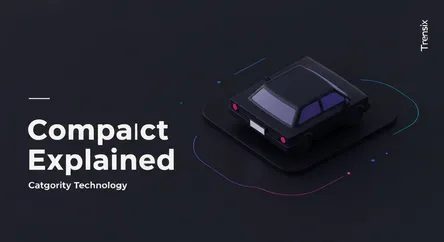Technology
Compact Cars Explained

Discover what defines a compact car. Learn why these small, fuel-efficient vehicles are trending for their practicality, affordability, and urban agility.
What is it?
A compact car is a vehicle class between subcompact and mid-size, designed to balance fuel efficiency, cost, and practicality. Seating up to five, they excel in city driving yet remain capable on highways. Classic examples like the Honda Civic or Toyota Corolla define the category by offering reliability and value. They are the go-to choice for drivers seeking an economical and maneuverable vehicle that doesn't sacrifice essential space for passengers and cargo.
Why is it trending?
Compact cars are gaining popularity due to key economic and environmental factors. High gas prices make their superior fuel economy incredibly attractive. In congested cities, their smaller size simplifies parking and navigating tight streets. A growing eco-consciousness also drives demand for vehicles with lower emissions. Automakers have boosted their appeal by equipping them with advanced safety systems and modern tech, making them compelling alternatives to larger, more expensive cars.
How does it affect people?
For individuals, choosing a compact car means direct savings on the purchase price, fuel, and insurance, making car ownership more attainable. They offer a practical solution for urban mobility without the hassle of a large vehicle. For society, a larger fleet of compact cars reduces overall fuel consumption and carbon emissions. This trend helps ease traffic congestion and lessens the strain on parking infrastructure in cities, contributing to a more efficient and sustainable urban environment.